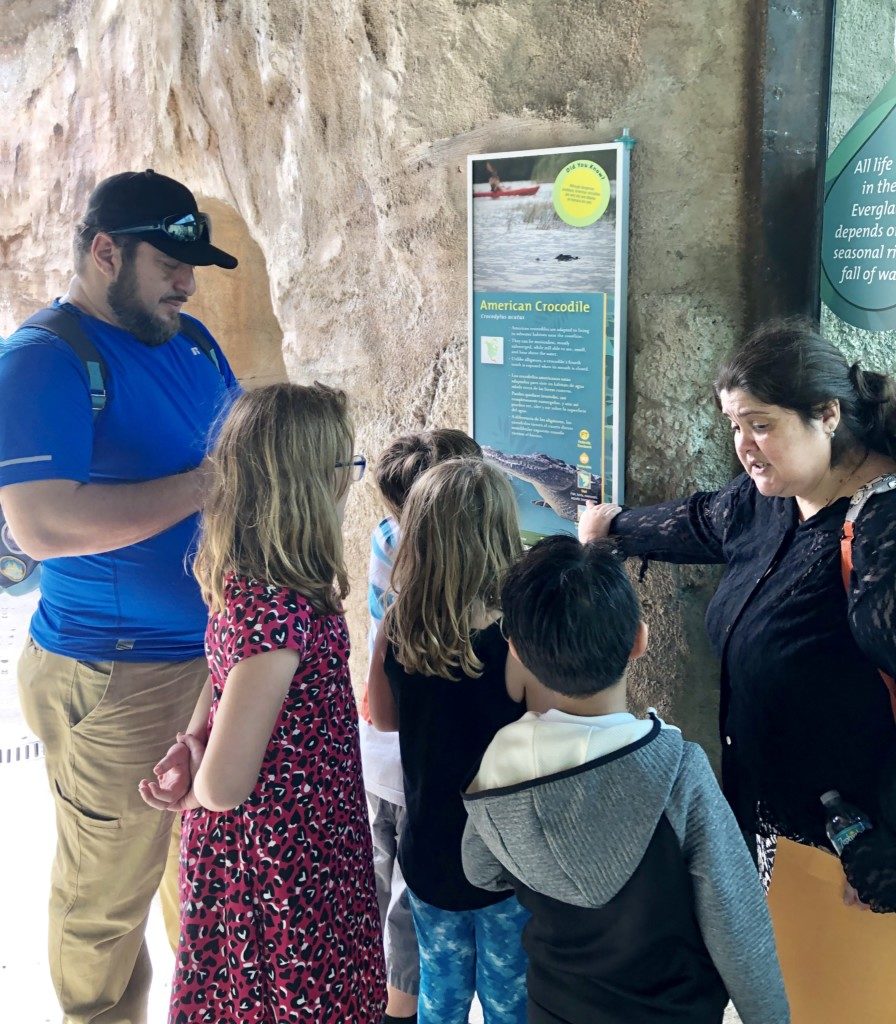
The American film classic Aliens features a group of futuristic Marines who bite off more than they can chew when a distant colony they’re exploring turns out to be a lair of deadly space monsters. Private Hudson, played by the late, great Bill Paxton, melts down in a panic. Sigourney Weaver’s Ripley reminds him that a young girl they had rescued, Newt, had survived for weeks on the space station with no weapons and no training, prompting Hudson’s memorable question: “Why don’t you put her in charge?”
Well, why not indeed? As the film continues, it becomes increasingly clear that Newt was far savvier than any of the Marines, Hudson in particular.
 redefinED author Ron Matus recently reported from Miami, a K-12 education frontier, on former public schoolteacher Ana Garcia. “Miss Ana” rediscovered her calling by providing a group of special needs students with the education they need – in her home. An educator with a special needs son, she realized the system wasn’t working well for her as a teacher or as a mother.
redefinED author Ron Matus recently reported from Miami, a K-12 education frontier, on former public schoolteacher Ana Garcia. “Miss Ana” rediscovered her calling by providing a group of special needs students with the education they need – in her home. An educator with a special needs son, she realized the system wasn’t working well for her as a teacher or as a mother.
Garcia is far from alone on either front.
She loved teaching in district schools. But over the course of a decade, her passion ebbed. Too many mandates. Too much violence. Too little help, in her view, for students with disabilities.
Her experience resounds throughout the research on public school teacher retention.
For years, teachers have cited working conditions as the primary reason for leaving the profession, outpacing compensation. Garcia didn’t lose her ability to serve children with disabilities, but she lost her willingness to operate in a broken and frustrating system. Her experience also is consistent with teacher shortage research. A universe of veteran teachers who love to teach have lost their willingness to function as a cog in a bureaucratic machine.
Garcia’s experience as the parent of a special needs child, sadly, also is not unique. Matus writes:
Frustrations began to mount for Garcia the mom, too.
In Pre-K, Kevin was happy and learning in his neighborhood school, in a class with five kids and two teachers. But for kindergarten, he was assigned to an inclusion class with 25 kids, one teacher and one “floating” teacher who toggled between multiple classrooms. Garcia said Kevin’s clothes weren’t being changed when he soiled himself. He wasn’t being fed.
Then Kevin began escaping from class and, somehow, running all the way to a parking lot before being stopped. The first time, Garcia was frightened. The second time, shocked. The third time, angry.
In 2014, after 12 years as a middle school English teacher, curriculum specialist and school-level director for accountability and instruction, Garcia called it quits.
An old expression holds that if you want something done right, you do it yourself. The Gardiner Scholarship has empowered Ana Garcia to educate not only her son, but other students as well.
Miss Ana is back, and this time, she’s the one in charge. Matus continues:
Off the grid, homeschoolers are DIYing into increasingly sophisticated co-ops and enrichment programs. Micro-schools, whether mini-chains or one-offs, are pushing the limits of what’s possible. In Florida, choice scholarships are giving a more diverse mix of parents the opportunity to go small or go home.
Garcia envisions a micro-school that can also serve home education students who want part-time services, combined with a center for Applied Behavioral Analysis. In the meantime, she’s the mutineer at the heart of her cluster, connected to a blooming constellation of other clusters.
A few months ago, I posed the question: How are Florida policymakers planning to provide the human and physical capital to deal with a large projected increase in the student population, Baby Boom teacher retirement and increased facility needs, and increased Medicaid and pension demands all at the same time. Is the plan to somehow money-whip potential public schoolteachers into actual public schoolteachers when the state lacks the money for whipping, and teacher exit surveys show other issues, some listed above, loom even larger than pay? If so, the state might need a new plan.
Florida, like every other state, can’t hire enough special education teachers for public schools, even as it spends $400 million on space for 14,500 children – which looks like about $27,500 per space by my Texas public school math. Garcia sounds like a fantastic special education teacher, and she teaches in her own home. Right about now, I’m hearing a psychic scream from a frightened person with somewhat reactionary K-12 policy preferences: “How are we going to hold her accountable?” Answer: Families will rate her online and other families with have access to the ratings. Elegant and delightfully lacking in bureaucracy.
Ana Garcia offers a solution that families need. Florida has many more potential solutions in the form of teachers who got fed up like Miss Ana. Why don’t you put her in charge by giving more families the ability to lure her back into education – this time as the leader of her own school?


